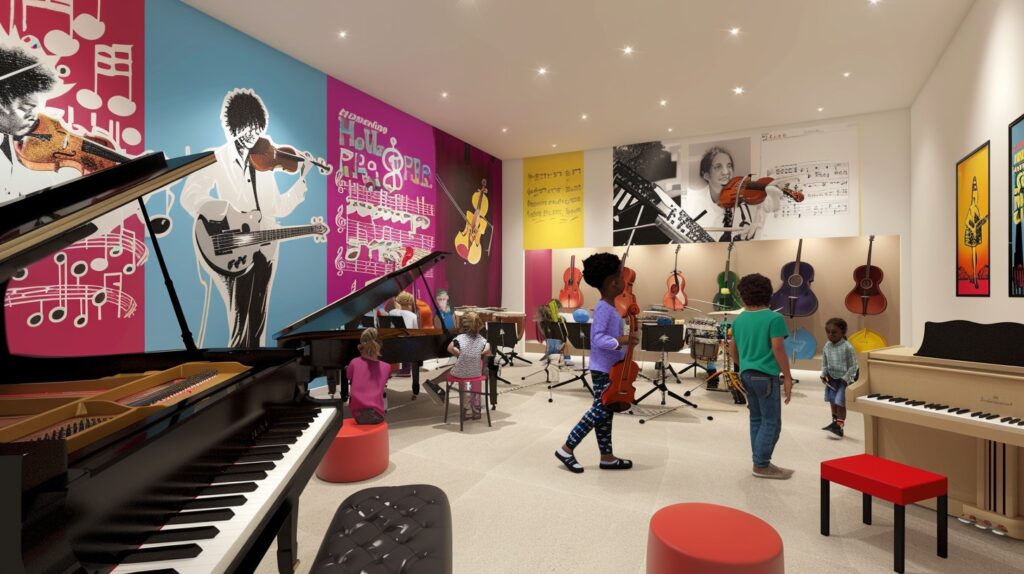Music Education: An Integrated Approach to Learning
Contents
Music Education: An Integrated Approach to Learning
Introduction
Music education is an important component of a good education. It covers a wide range of musical experiences, from singing and playing instruments to music theory and composition. In addition to developing musical skills, music education fosters critical thinking, creativity, and social skills.

Benefits of Music Education
Cognitive Development: Music education enhances problem solving, critical thinking and memory skills.
- Emotional Development: Music can evoke strong emotions and develop emotional intelligence.
- Social Development: Collaborative music-making develops teamwork and communication skills.
- Academic Achievement: Studies have shown a correlation between music education and higher academic performance.
- Wellbeing: Music has a positive effect on mental health and stress reduction.
Basic Components of Music Education
Music education typically includes:
- Singing: Development of vocal skills and musicianship.
- Instrumental Music: Learning to play a musical instrument.
- Music Theory: Understanding the structure and language of music.
- History and Culture of Music: Exploring the history and cultural context of music.
- Music Composition: Creating original musical works.
- Music Technology: Exploring the use of technology in the creation and performance of music.
Table: Effect of music education

| Advantage | Description |
|---|---|
| Scientific | Improves problem solving, critical thinking and memory. |
| emotional Enhances emotional intelligence and self-expression | |
| Social | Promotes teamwork, cooperation, and communication |
| Educational | Correlation with higher academic achievement |
| welfare Reduces stress and promotes mental health. |
Frequently Asked Questions About Music Education
Is music education necessary for all students?
- Yes, music education benefits students of all ages and abilities.
*How does music education affect brain development? - Music stimulates multiple areas of the brain, enhancing cognitive function.
*Can music education improve literacy skills? - Research suggests a positive relationship between music education and reading skills.
What is the role of technology in music education? - Technology can enhance music learning through digital devices, music production software, and online resources.
How can parents help with music education at home? - Encourage listening to music, provide opportunities to make music, and participate in school musical performances.

Result
Music education is a powerful tool for the overall development of children. It nurtures creativity, critical thinking and emotional intelligence while fostering a lifelong appreciation for music. By investing in music education, we create a more vibrant and prosperous society.

Would you like to focus on a specific aspect of music education, such as music therapy, music technology, or music education for students with disabilities?






